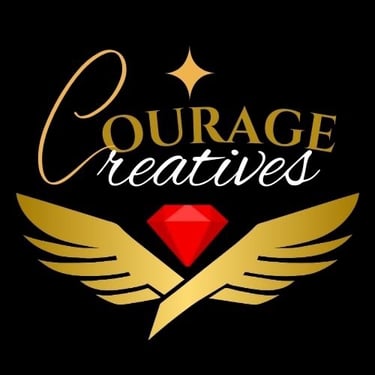Burnout is Your Body Yelling—HELP! (Learn the 3-Step Microboundaries Framework Today)
You are not weak. You are just human.
BOUNDARIESBURNOUTRESTCOURAGEMENTAL HEALTH
Maria Soriano, M.Ed., SHRM-CP
5/31/20254 min read


Since our bodies can’t talk to us directly in words when something is wrong, it has a special way of asking help from us. Sadly, special could mean painful, annoying, and it some cases, dangerous.
Karoshi—Death by Overwork
In 2012, a young employee at a major Japanese advertising agency collapsed and died from a heart failure after working for more than 100 hours a month of unpaid overtime. In Japan, this death caused by overwork is called Karoshi (過労死).
Even with recent labor reforms aimed at limiting overtime and enhancing workplace mental health support not only in Japan but in many countries around the world, including the United States, high-pressure jobs such as finance, advertising, healthcare, and many more, continue to cause invisible harm that comes as a price for doing “amazing work.”
Still, when society expects a lot from us, the last thing we want is to be tagged as “weak,” so burnout is the last thing we want to admit we ignore on a daily basis. The truth is, burnout isn’t a flaw to be ashamed of; it is a call we should heed!
What Is Burnout and Why Is It Not a Scarlet Letter?
Burnout is a biological and psychological response to sustained stress, not a character defect. When we face ongoing stress without enough recovery time, our bodies release cortisol, the primary “stress hormone.” Elevated cortisol over time shrinks the prefrontal cortex, which governs decision-making and emotional regulation, and enlarges the amygdala, heightening fear and anxiety responses (Harvard Health Publishing, 2020).
Yes, your forgetfulness, irritability, or emotional flatlining aren’t personality flaws—they’re biological effects of burnout.
Introducing My 3-Step Microboundaries Framework
A microboundary or a soft boundary is a kind, clear limit that doesn’t sound defensive or aggressive. It signals your needs while maintaining professional tone and relationship. Think of it as a gentle redirect, not a hard "no." As an HR professional who has witnessed burnout in the workplace on a daily basis, this is something that has helped me as well as my super-busy colleagues and friends manage our workload and wellness in the workplace.
Have you tried microboundaries yet? If you haven’t, this is a sign you should! Here is the simple framework:
Identify who and what your stressors are. Is it a boss, client, or a family who thinks everything is urgent when it really isn’t? What about worrying too much about your to-do list that screams, “You have snoozed me 7 times already!”
Implement your soft boundary. If the request is reasonable but the timeline isn’t (same-day deadline), this is the perfect time to tell your boss, “I want to give this new project the attention it deserves, but the weekly report that the Finance Department needs is due today. How about we do a deep dive on the information that the Marketing Team asked us and submit the formal document by end of the week?”
Affirm that it’s okay. If you have a hard time telling others no, there is this voice that will keep bugging you that even a soft boundary is wrong. Repeat after me, “I am okay to take care of me too, so I can take better care of others later.”
Why it Works: Burnout often comes from boundary collapse. Practicing tiny boundaries builds self-trust and prevents energy leaks. You will be nicer to others too!
Please Don’t!
You’re not behind—you just need to prioritize better.
Oh, and stop glorifying burnout as passion. Instead, honor rest as a soft courage to listen to your body when it says, “I need a break now, not later.”
Reference:
Harvard Health Publishing. (2020). Understanding the stress response. https://www.health.harvard.edu/staying-healthy/understanding-the-stress-response
Maria Soriano is a dynamic leader, storyteller, and advocate for courageous living. As the founder and CEO of Courage Creatives, she helps individuals break through fear, find clarity, and take bold, values-driven steps toward personal and professional growth.
Dubbed as the Courage Coach, Maria brings deep empathy and actionable strategies to those navigating life transitions. She is also a sought-after host and emcee for community and corporate events, known for her energy, presence, and authenticity.
A SHRM-certified HR professional with years of experience in talent development, Maria also leads GoodHire Recruitment, a boutique agency that connects purpose-driven professionals with mission-aligned organizations. Her work in career architecture and workforce well-being has empowered countless individuals to align their gifts with meaningful work.
In addition, Maria brings over a decade of experience in higher education and currently serves as an adjunct faculty member at the University of Nevada, Las Vegas. She is also pursuing a graduate degree in Clinical Mental Health Counseling, further deepening her ability to support others with compassion and insight.
Her love for storytelling continues through The Courageously Speaking Podcast, where she hosts raw, unfiltered conversations on resilience, leadership, and growth. Outside her professional work, Maria is a singer-songwriter who often collaborates with her husband, using music to inspire connection and healing.
At the heart of everything she does, Maria champions courage — helping others embrace uncertainty, trust their instincts, and live boldly and authentically.


Productivity and Inspiration with Maria Soriano
Digital media and education resources to help you live a full life.
Consultation
© 2024. All rights reserved.


3055 St. Rose Parkway #777341 Henderson, NV 89077
3055 St. Rose Parkway #777341 Henderson, NV 89077
3055 St. Rose Parkway #777341 Henderson, NV 89077
3055 St. Rose Parkway #777341 Henderson, NV 89077
© 2024. All rights reserved.
© 2024. All rights reserved.
